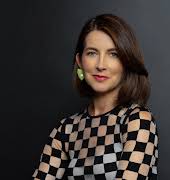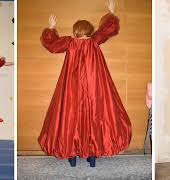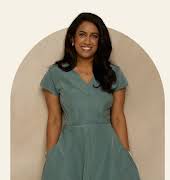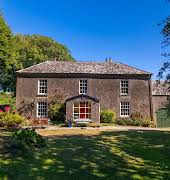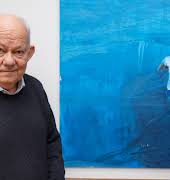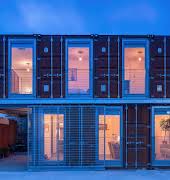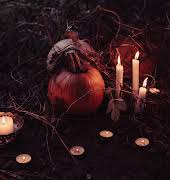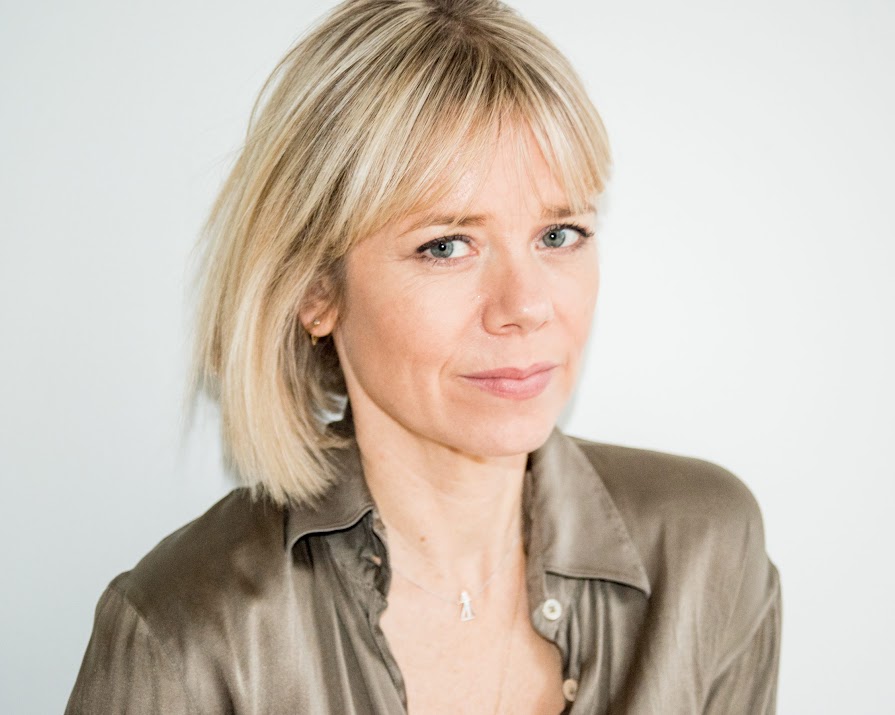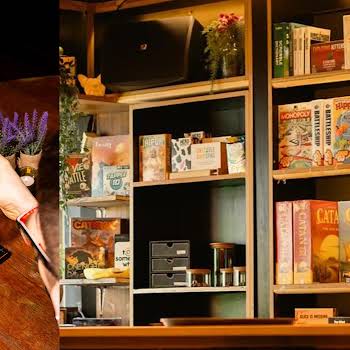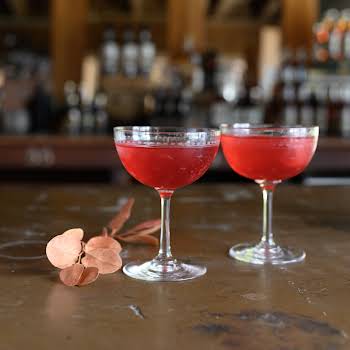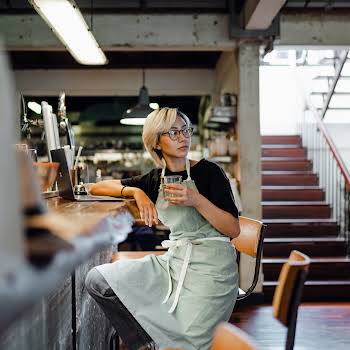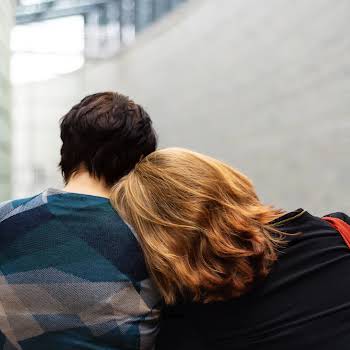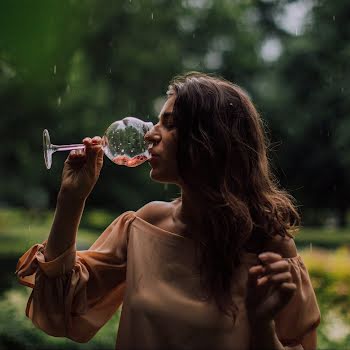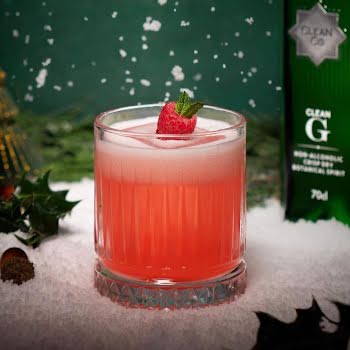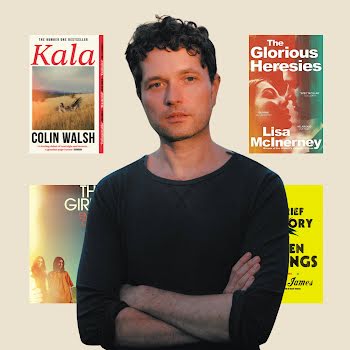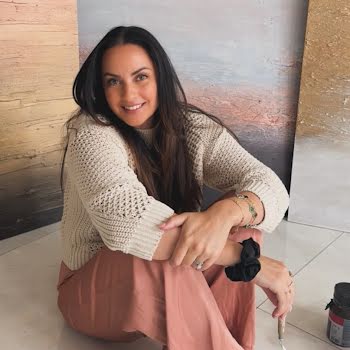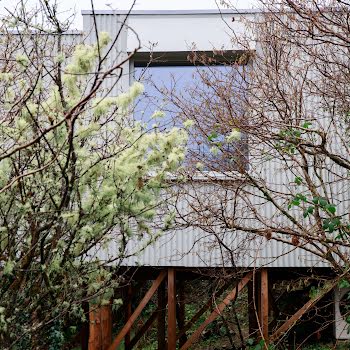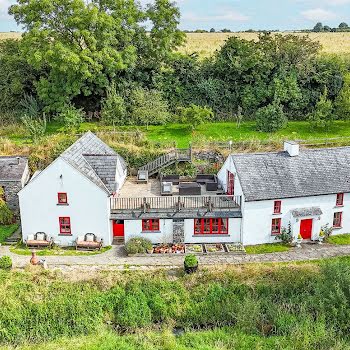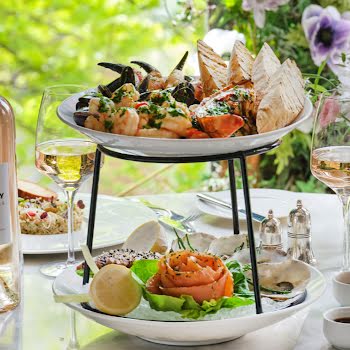
Sponsored
Getting sober curious: ‘I was concerned it might affect my relationship with my husband’
Sponsored By

By IMAGE
12th Jan 2022
12th Jan 2022
Sponsored By

When author Ruby Warrington started exploring the idea of getting 'Sober Curious', she wasn't sure how it would impact her life. Here, she opens up about her journey from frequent social drinker to a drier lifestyle, and what inspired her to document it all in her book.
Author Ruby Warrington is the creator of the term ‘Sober Curious‘, which emphasises the need to stop drinking on autopilot and start questioning our impluses to rely on drink, especially in social situations. It’d been an idea she was exploring for years and one that she decided to practice in her own life, documenting her journey along the way.
With over 20 years’ experience as a journalist and editor, Ruby is well-qualified in her knowledge of various lifestyles and how alcohol has become a key factor in many. She is also the founder of self-publishing imprint Numinous Books, and is known as a revolutionary thinker in the “Now Age” wellness space.
Here, with the help of non-alcoholic drinks brand Clean Co, she explains what it means exactly to be ‘sober curious’ and why so many people are choosing this path.
What inspired your book Sober Curious? How do you think other people can relate?
“The book is a culmination of all my discoveries and learnings from having been ‘sober curious’ myself for the past eight to nine years — a term I coined to describe my own uneasy relationship with booze. After many years of privately questioning my drinking, I began speaking openly about my conflicted feelings about alcohol, first with friends and family and then at sober curious themed events I began to organise in 2015.
“At this point, I realised that a lot of people felt the same way as me — like they knew alcohol could be problematic for them, but didn’t see themselves as alcoholics — but were either afraid to talk about it, or didn’t have an outlet for an open discussion about the problems even ‘normal’ drinkers experience. After sober curiosity got named a key wellness trend by several outlets in 2017 (off the back of my event series), I decided to put everything I’d learned into this book.”
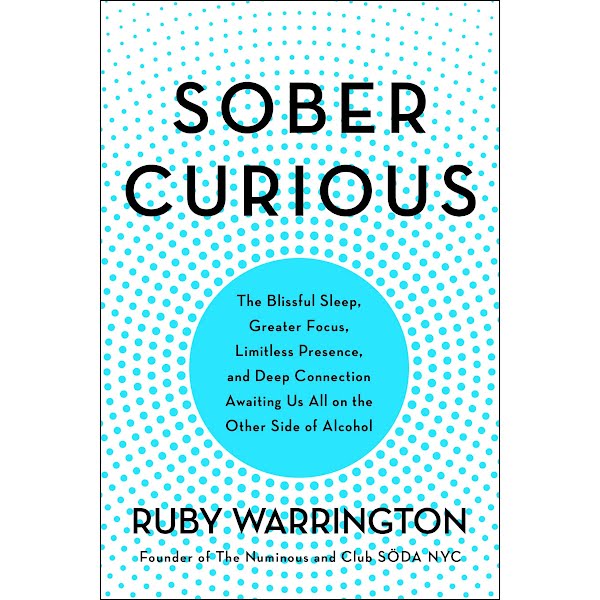
What does it mean to be ‘Sober Curious’?
“Being Sober Curious means choosing to stop drinking on autopilot. Means, literally, choosing to question every instinct, impulse, invitation and expectation to drink. Most of us were not taught to question how we (both individually and as a society) use alcohol — why it is so socially acceptable, what feelings we may be using it to mask, how it really makes us feel, and not to mention how much more awake, aware, and confident we would feel if we didn’t! When you get really honest with your answers to questions like these, it makes less and less sense to keep drinking.”
How is a Sober Curious lifestyle different from Alcoholics Anonymous? What’s your feeling about A.A.?
“I think the fact that AA offers unlimited, free, peer-to-peer counseling and support for people struggling with addiction is an amazing thing. There needs to be more of this in every area of life! But the black and white, abstinence-only approach is not for everybody who finds themselves questioning their relationship to alcohol. Your life does not have to have become ‘unmanageable’ as a result of drinking for you to get Sober Curious.
“You do not have to identify as an ‘alcoholic’ (a label that has so much stigma, and which I believe puts many ‘normal’ drinkers off questioning their drinking). The Sober Curious approach is much more self-directed and is about educating yourself to begin trusting your own body over the societal messaging we receive about booze.”
You posit that anyone who drinks on a regular basis is a little addicted to alcohol. What is your reasoning behind this claim and why was this an important discovery on your own Sober Curious journey?
“I came up with this theory based on three factors: the fact our brains are biologically hardwired to form an attachment to alcohol; the fact alcohol is one of the five most addictive substances, and the fact that booze is heavily marketed to us from every angle from the age we’re old enough to understand. This trifecta of influences makes it very hard not to become just a little bit addicted to booze. For me, recognising that it’s actually very ‘normal’ for drinking to become habitual, helped to break down some of the stigmas that surround the subject of alcoholism, in turn making it less shameful to begin questioning my relationship to alcohol.”
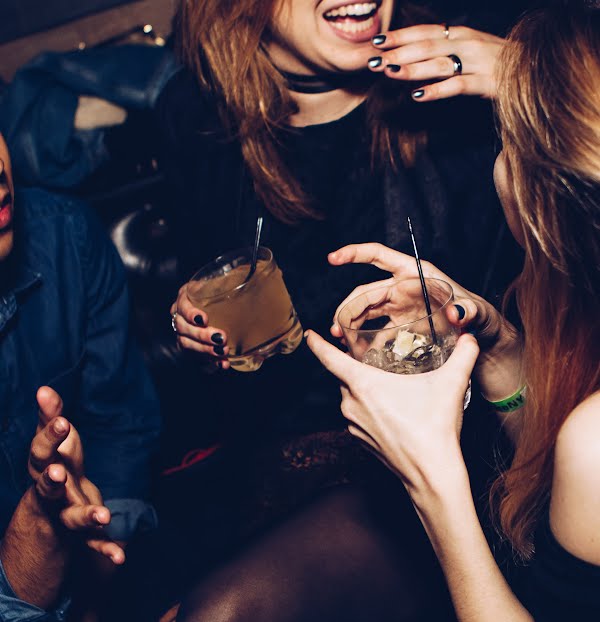
Why do you think so many people are exploring being sober curious?
“On the surface, it could be seen as the logical evolution of the modern wellness revolution — the more time, money and energy people are putting into their overall wellbeing, the harder it becomes to justify the overall toxicity and health risks (particularly mental health) of drinking. There’s also increasing access to other ways to switch off and unwind, such as yoga, meditation, and even CBD, that don’t come with the same negative side effects of booze.
“Social media means we’re socialising in different ways too, and it’s easier to avoid the social anxiety that a lot of people use alcohol to medicate by connecting with others online. But above all, we’re living through very a destabilising time of rapid change, and I think people are aware that getting ‘out of it’ and numbing out for a few hours with booze is not a long-term fix for the societal problems we’re facing. In fact, given the link between hangovers and anxiety, it just makes things worse.”
What are your recommendations for people who are intrigued by the idea of being Sober Curious, but who are suffering from Fear of Missing Alcohol (FOMA)?
“Feel the FOMA and do it anyway! Most people drink alcohol to feel more confident and relaxed in social situations (question: why does socialising make us nervous and tense?!), and this is often where FOMA is most prevalent. If we’ve been teaching our brains since, say, age 15 that we ‘need’ alcohol to socialise, the thought of having to ‘perform’ without our trusty liquid crutch can bring up a lot of fear.
“Since the fastest way to dismantle your fears is to prove them wrong, I recommend embracing as many Sober Firsts (staying sober in situations where you would normally drink) as you can. It may take a few goes, but you’ll soon realise you don’t ‘need’ alcohol at all. Not to mention discover which social situations to avoid altogether going forward!”
What are some of the biggest hurdles that we can expect to encounter if we decide to embrace Sober Curiosity? What were the toughest challenges for you?
“At first, I was concerned about how it would affect my relationship with my husband. We’d always had so much fun drinking together (even though the price we paid the morning after felt like it was getting higher and higher the older we got), and, at first, I found myself wondering if me not drinking would drive a wedge between us. Maybe even leave us with nothing to talk about. Which says a lot about the role of alcohol in our marriage (and in many relationships). But, again, my fears were proven wrong. Being fully present with each other has actually led to a new level of emotional intimacy, even after almost 20 years of marriage. And having seen the positive impact of not drinking on my life, now he is Sober Curious too.”
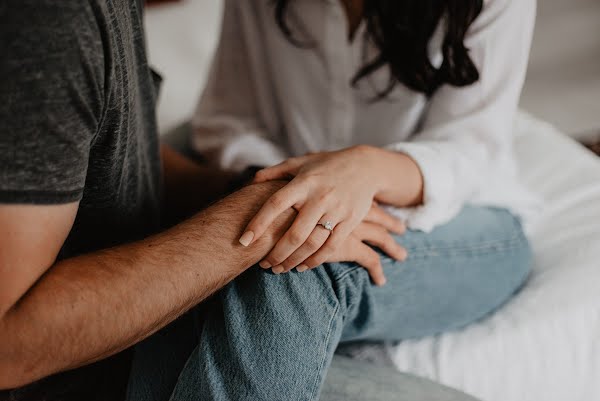
You call Kate Moss your “ultimate ‘girl about town; role model,” and write that your generation of women was sold on the idea that drinking was a form of feminist emancipation. Why are many women your age rethinking their relationship with alcohol, and even, like Kate Moss, going sober?
“I came of age in London in the 1990s, the era of the ‘laddettes,’ of SATC, and of Cool Britannia — when Kate Moss falling out of the Met Bar, drunk, was seen as the epitome of cool. This was also when alcohol companies began actively targeting women with their messaging, on a mission to make it appear ‘feminist’ for women to drink as much as men. But this was a big, fat, lie, and I believe it left my generation way more dependent on alcohol (to feel like modern, emancipated women) than we ever intended.
“Now even Kate Moss has stopped drinking (she celebrated a year sober in October 2018). And following a spate of booze-sodden #metoo stories (the Brett Kavanaugh trial being a recent case in point), it’s becoming more and more clear that getting Sober Curious is actually how we — women, men and people of every gender expression in between — can begin to reclaim both our bodies and our consciousness, and step into our full power.”
You write that “life is the opposite of boring without booze.” What are some examples of the way your life changed—and became the opposite of boring—when you stopped drinking? What discoveries did you make?
“For anybody used to riding the highs and lows of a regular ol’ social drinking habit, the perception is that removing the booze will make life monotonous and one-note. The question might be: aren’t the hangovers worth it for the highs?! But here’s the thing. When you’re used to having the ‘good times’ on tap (so to speak), you’re also confining all the fun to certain narrowly defined situations.
“What I discovered when I got Sober Curious, was that what makes life never boring — being fully in touch with all my feelings all the time. This may not always be ‘fun,’ but it brings back the full texture of life. In the words of Alice from Alice in Wonderland, life literally gets ‘curiouser and curiouser,’ which is the exact opposite of the predictable monotony of knowing exactly how you’re going to feel on Friday night (and Saturday morning).”
Can calling yourself “sober curious” be a way of life? If so, where should one start?
“I am not 100 per cent abstinent, but I have essentially reclassified alcohol as a ‘class A’ substance for myself. This, coupled with embracing years of Sober Firsts and answering all my own Sober Curious questions with integrity, means the situations where alcohol feels like an appropriate substance are becoming fewer and farther between.
“For a regular social drinker (which I define as somebody who drinks at least 1-2 nights per week, although not necessarily to excess), I recommend taking at least 100 days off drinking to really feel the benefits. Dry January is a great start, but relatively easy to muscle through — whereas taking a longer break means you’ll be confronted with some more challenging ‘Sober Firsts’ (first sober date, wedding, work party, vacation, etc.) — and therefore have more opportunities to discover firstly that you do not ‘need” alcohol in any of these situations, secondly how great it feels to be truly free of the toxic load of booze, and thirdly how deeply ingrained your attachment to alcohol really is (based on how hard it can sometimes be not to drink).
“From there, yes this absolutely is a lifestyle, and one that’s less about a black and white approach, or abstinence being ‘good’ and drinking being ‘bad’. It’s about being really honest with yourself about the role alcohol plays in your life, the overall impact that (even moderate) drinking has on your wellbeing, and from there working out for yourself if and when you actually want to engage with this substance.”
We’ve teamed up with Clean Co to launch a four-week campaign focusing on ‘Sober Curious”. The non-alcoholic drinks company has a delicious range of non-alcoholic spirits that taste just as good as the real thing, and, with no empty calories and no sugar or sweeteners, they offer a cleaner alternative without the hassle of a hangover.

